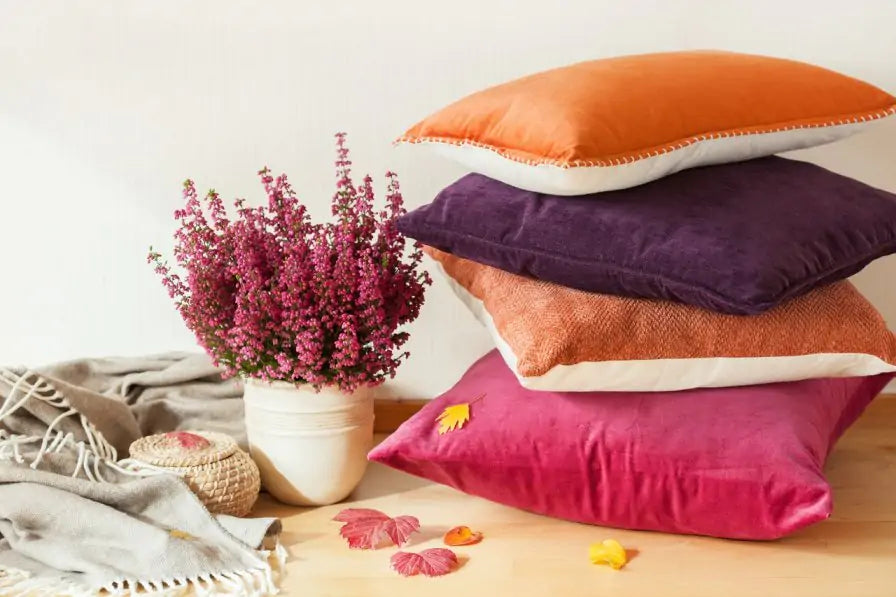Your basket is currently empty.
Shop NowUpcycling Projects to Try : Number 3 : Cushion Covers

Upcycling project no. 3
Make a cushion cover from an old sweater
The need for increased recycling of textiles is being recognised. There are over 80 billion items of clothing produced each year, and only about 15% of textiles are being recovered and reused. So textile recycling is definitely a challenge, as so many garments continue to be sent to landfill.
What happens to textiles in landfill?
When natural fibres are sent to landfill, they can take centuries to degrade. Methane and Co2 is released into the atmosphere. Man-made fibres do not decompose at all. They can release toxic substances into the soil and it can end up in waterways.
Where do recycled textiles come from?
- Used consumer goods, such as old clothes, furniture, and vehicle upholstery.
- Scrap textiles from industry.
What happens to reused textiles?
About 61% of clothes that are considered wearable are exported to poorer countries, in Africa for example. The rest of the textiles are reused, recycled, or donated to charity.
What happens when textiles are recycled?
The Recycling Process
When textiles are recycled, there are some differences between natural and man-made fibres.
Natural fibres
The textiles are sorted by material type and colour. If materials are sorted by colour it means that they don’t need to be dyed again, which saves energy.
The textiles are then shredded, then they are cleaned and re-spun if they are going to be used in knitting or weaving. If they are not re-spun, they are compressed, if they are going to be used as mattress fillings, for example.
Man-made fibres
Garment are shredded then made into polyester chips. These are then melted and turned into new fabrics.

How to make a cushion cover from an old sweater
What you’ll need
Sweater
Buttons or other embellishments
Coordinating thread
Step 1
Cut out the front and back of the cushion cover, using the front and back of the sweater. Try to keep the sweater hem intact then this means you won’t have to sew up that end.
Step 2
Pin the 2 pieces together and line up the 2 sides without the hem. Pin these together then sew them together using a zig-zag stitch.
Step 3
Insert the cushion. Consider wrapping it in an identical coloured fabric to the cover if the white cushion shows through your sweater. Sew the cover closed and sew on your buttons or any other embellishments for decoration.






